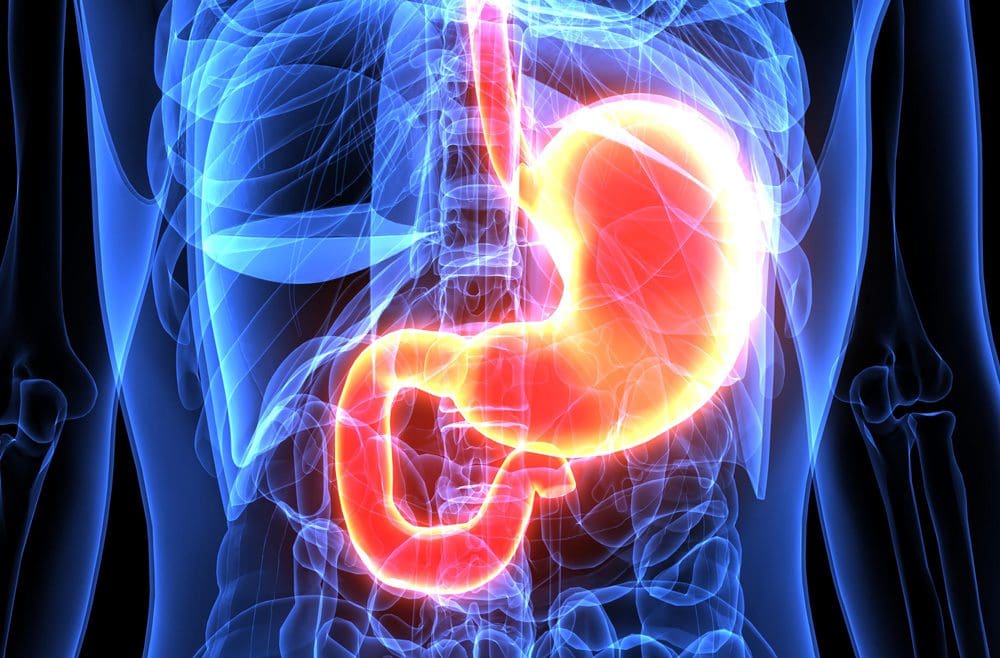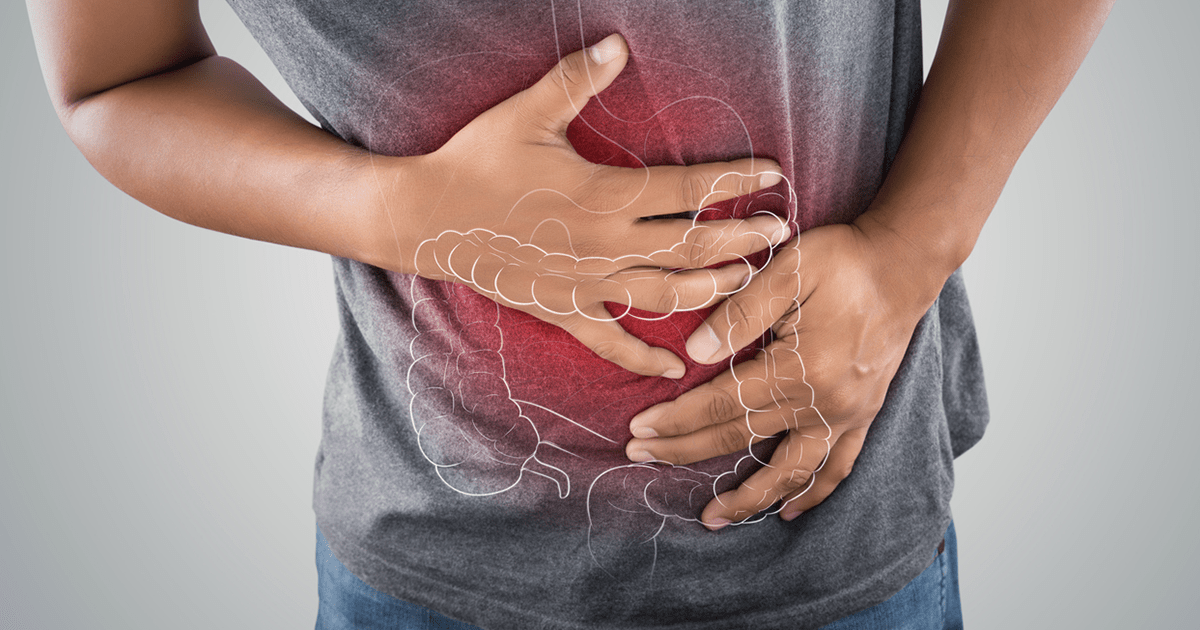
Table of Contents
Introduction
Part of the digestive system’s primary system is to make sure that the food that a person is consuming is being digested and excreted out. The digested food is packed with vitamins and nutrients that the immune system, muscle tissues, cells, organs, and the body needs to function correctly. When unwanted pathogens or disruptors enter the body and travel through the gut system, it can cause chronic issues to develop and cause harm to each of the systems. However, many treatments can help both the body and the gut system dampen the effects and make the body feel better. In this 2 part series, we will be looking at how gastrointestinal disorders can affect the gut and what kind of treatments dampen their effects. Part 1 looked at the GI tract and how each organ functions in the digestive system, and how the enteric nervous system and each muscle cells work together. By referring patients to qualified and skilled providers who specialize in gastroenterology services. To that end, and when appropriate, we advise our patients to refer to our associated medical providers based on their examination. We find that education is the key to asking valuable questions to our providers. Dr. Alex Jimenez DC provides this information as an educational service only. Disclaimer
Â
Can my insurance cover it? Yes, it may. If you are uncertain, here is the link to all the insurance providers we cover. If you have any questions, please call Dr. Jimenez at 915-850-0900.
Disorders Of GI Motility
When pathogens start to enter the body and affect the gut system, many problems will affect the gut and the body itself. These are known as gastrointestinal motility disorders. Research shows that gastrointestinal motility disorders have many signs and symptoms that can occur anywhere throughout the luminal gastrointestinal tract. Some of these disorders can affect:
- Gastric motility
- Â Small intestinal motility
- Colon and anorectal motility
These disorders can cause many gut issues and diseases like SIBO, gastroparesis, constipation, diarrhea, and IBS (irritable bowel syndrome) to make a person feel miserable and cause pain if not treated. Other research studies have found that gastrointestinal dysmotility can also cause a delay in gastric emptying and cause obstruction in the large and small intestines. When this happens, the consumed food will not be able to pass through the intestines, and the intestinal muscles will have contractions causing the individual to be in pain.
Gastroparesis
Gastroparesis is derived from the Greek words “gastro” and “paresis,” which means partial paralysis of the stomach. Research studies have shown that gastroparesis is a condition of collective symptoms like bloating due to nausea and vomiting that causes delayed emptying of the stomach in the absence of mechanical obstruction. Some of the most common signs that are caused by gastroparesis include:
- NauseaÂ
- Abdominal pain
- Early satiety
- Vomiting
The symptoms can vary from intermittent to severe, depending on how sour the stomach is. In a normal gut function, the proximal stomach will expand to accommodate the food consumed, and the intragastric pressure is maintained. The food solids are broken down into 1-2 mm particles with contractions causing the gastric emptying to be 50% in 2 hours and 90% in 4 hours. With gastroparesis, the stomach will lose all of the accommodations and alter the antral phasic contractions causing the stomach to be in visceral hypersensitivity.
Irritable Bowel Syndrome
Irritable bowel syndrome or IBS is a functional bowel disorder that causes chronic or recurrent abdominal pain or discomfort in the large intestines. Research shows that IBS is a chronic condition caused by numerous factors that cause IBS to be severe in some people who may have it. With IBS being associated with altered bowel habits and the absence of organic abnormalities, some of these factors that can cause IBS in the body are:
- Documented weight loss
- Nocturnal symptoms
- Fevers, chills, recent travel to endemic regions
- Severe unrelenting large-volume diarrhea
- Family history of colon cancer
- Recent antibiotic use
- Abnormal physical exam findings
Other research studies have found that since IBS is a type of GI disorder, it can cause the brain-gut connection to have problems and cause the digestive tract to be susceptible. Any abdominal pain or discomfort with altered defecation that IBS causes can cause prominent bloating associated with stress or comorbid conditions.
Common Gut Disorders In The Gut
Many common gut disorders can affect the gut system and cause personal discomfort and pain if it is not treated right away. Utilizing gut-healthy foods like probiotics, a change in a particular lifestyle can provide beneficial results in lowering gut disorders and dampening their effects. This will allow the gut to heal, and many individuals will begin to continue with their daily activities without gut issues.
Treatments For GI Motility Disorders
There are many treatments to help the gut system and dampen GI motility’s effects on the gut. Many individuals have done a 180 turn on their lifestyles by changing their eating habits and taking out the foods causing them to have gut issues. By incorporating some of these treatments, many individuals can start feeling better, knowing that the issue is causing them gut problems can be resolved. Some of the treatments that can lower GI motility disorders include:
- Melatonin
- Herbal therapy
- Probiotics
- Elimination diets
- Peppermint
- Laxatives
- Fibers
Fiber
An increased fiber intake is an initial treatment to help dampen the effect of GI motility disorder. It is available in a large variety of supplements and foods that are low cost, safe, and easy to use. Research studies have shown that fiber can cause an increase in the frequency of bowel movements. Since fiber is consists of cell walls that resist digestion and maintain the water by increasing the stool mass/bulk to be excreted out of the body and provide relief. It is essential to consume water with fiber for the bowel movement to be exerted without any issues. Studies have shown that dietary fibers are integral to a balanced diet. When individuals consume a high fiber diet, it can provide many physiological and metabolic benefits to the body.
Conclusion
All in all, it is important to have a healthy diet and a change in lifestyle habits to ensure that the gut is working properly. When there are unwanted pathogens that start to infect the gut, it can develop into chronic issues over time causing the person to be in pain. Utilizing many therapeutic treatments can be beneficial to the gut and help the individual be pain-free.
References
Deane, Adam M, et al. “Pathophysiology and Treatment of Gastrointestinal Motility Disorders in the Acutely Ill.†Nutrition in Clinical Practice: Official Publication of the American Society for Parenteral and Enteral Nutrition, U.S. National Library of Medicine, Feb. 2019, pubmed.ncbi.nlm.nih.gov/30294835/.
Hillemeier, C. “An Overview of the Effects of Dietary Fiber on Gastrointestinal Transit.†Pediatrics, U.S. National Library of Medicine, Nov. 1995, pubmed.ncbi.nlm.nih.gov/7494680/.
Lacy, Brian E, and Kristen Weiser. “Gastrointestinal Motility Disorders: An Update.†Digestive Diseases (Basel, Switzerland), U.S. National Library of Medicine, 2006, pubmed.ncbi.nlm.nih.gov/16849850/.
Medical Professionals, Cleveland Clinic. “Irritable Bowel Syndrome: IBS, Symptoms, Causes, Treatment.†Cleveland Clinic, 24 Sept. 2020, my.clevelandclinic.org/health/diseases/4342-irritable-bowel-syndrome-ibs.
Reddivari, Anil Kumar Reddy, and Parth Mehta. “Gastroparesis.†StatPearls [Internet]., U.S. National Library of Medicine, 31 Dec. 2021, www.ncbi.nlm.nih.gov/books/NBK551528/.
Staff, Mayo Clinic. “Irritable Bowel Syndrome.†Mayo Clinic, Mayo Foundation for Medical Education and Research, 1 Dec. 2021, www.mayoclinic.org/diseases-conditions/irritable-bowel-syndrome/symptoms-causes/syc-20360016.
Suresh, Harsha, et al. “Rheological Characteristics of Soluble Fibres during Chemically Simulated Digestion and Their Suitability for Gastroparesis Patients.†Nutrients, MDPI, 17 Aug. 2020, www.ncbi.nlm.nih.gov/pmc/articles/PMC7468937/.
Disclaimer
Disclaimers
Professional Scope of Practice *
The information herein on "How Gut Disorders Affect The GI Motility | Part 2" is not intended to replace a one-on-one relationship with a qualified health care professional or licensed physician and is not medical advice. We encourage you to make healthcare decisions based on your research and partnership with a qualified healthcare professional.
Blog Information & Scope Discussions
Welcome to El Paso's wellness blog, where Dr. Alex Jimenez, DC, FNP-C, a board-certified Family Practice Nurse Practitioner (FNP-C) and Chiropractor (DC), presents insights on how our team is dedicated to holistic healing and personalized care. Our practice aligns with evidence-based treatment protocols inspired by integrative medicine principles, similar to those found on dralexjimenez.com, focusing on restoring health naturally for patients of all ages.
Our areas of chiropractic practice include Wellness & Nutrition, Chronic Pain, Personal Injury, Auto Accident Care, Work Injuries, Back Injury, Low Back Pain, Neck Pain, Migraine Headaches, Sports Injuries, Severe Sciatica, Scoliosis, Complex Herniated Discs, Fibromyalgia, Chronic Pain, Complex Injuries, Stress Management, Functional Medicine Treatments, and in-scope care protocols.
Our information scope is limited to chiropractic, musculoskeletal, physical medicine, wellness, contributing etiological viscerosomatic disturbances within clinical presentations, associated somato-visceral reflex clinical dynamics, subluxation complexes, sensitive health issues, and functional medicine articles, topics, and discussions.
We provide and present clinical collaboration with specialists from various disciplines. Each specialist is governed by their professional scope of practice and their jurisdiction of licensure. We use functional health & wellness protocols to treat and support care for the injuries or disorders of the musculoskeletal system.
Our videos, posts, topics, subjects, and insights cover clinical matters, issues, and topics that relate to and directly or indirectly support our clinical scope of practice.*
Our office has reasonably attempted to provide supportive citations and has identified the relevant research studies or studies supporting our posts. We provide copies of supporting research studies available to regulatory boards and the public upon request.
We understand that we cover matters that require an additional explanation of how they may assist in a particular care plan or treatment protocol; therefore, to discuss the subject matter above further, please feel free to ask Dr. Alex Jimenez, DC, APRN, FNP-BC, or contact us at 915-850-0900.
We are here to help you and your family.
Blessings
Dr. Alex Jimenez DC, MSACP, APRN, FNP-BC*, CCST, IFMCP, CFMP, ATN
email: coach@elpasofunctionalmedicine.com
Licensed as a Doctor of Chiropractic (DC) in Texas & New Mexico*
Texas DC License # TX5807
New Mexico DC License # NM-DC2182
Licensed as a Registered Nurse (RN*) in Texas & Multistate
Texas RN License # 1191402
ANCC FNP-BC: Board Certified Nurse Practitioner*
Compact Status: Multi-State License: Authorized to Practice in 40 States*
Graduate with Honors: ICHS: MSN-FNP (Family Nurse Practitioner Program)
Degree Granted. Master's in Family Practice MSN Diploma (Cum Laude)
Dr. Alex Jimenez, DC, APRN, FNP-BC*, CFMP, IFMCP, ATN, CCST
My Digital Business Card



